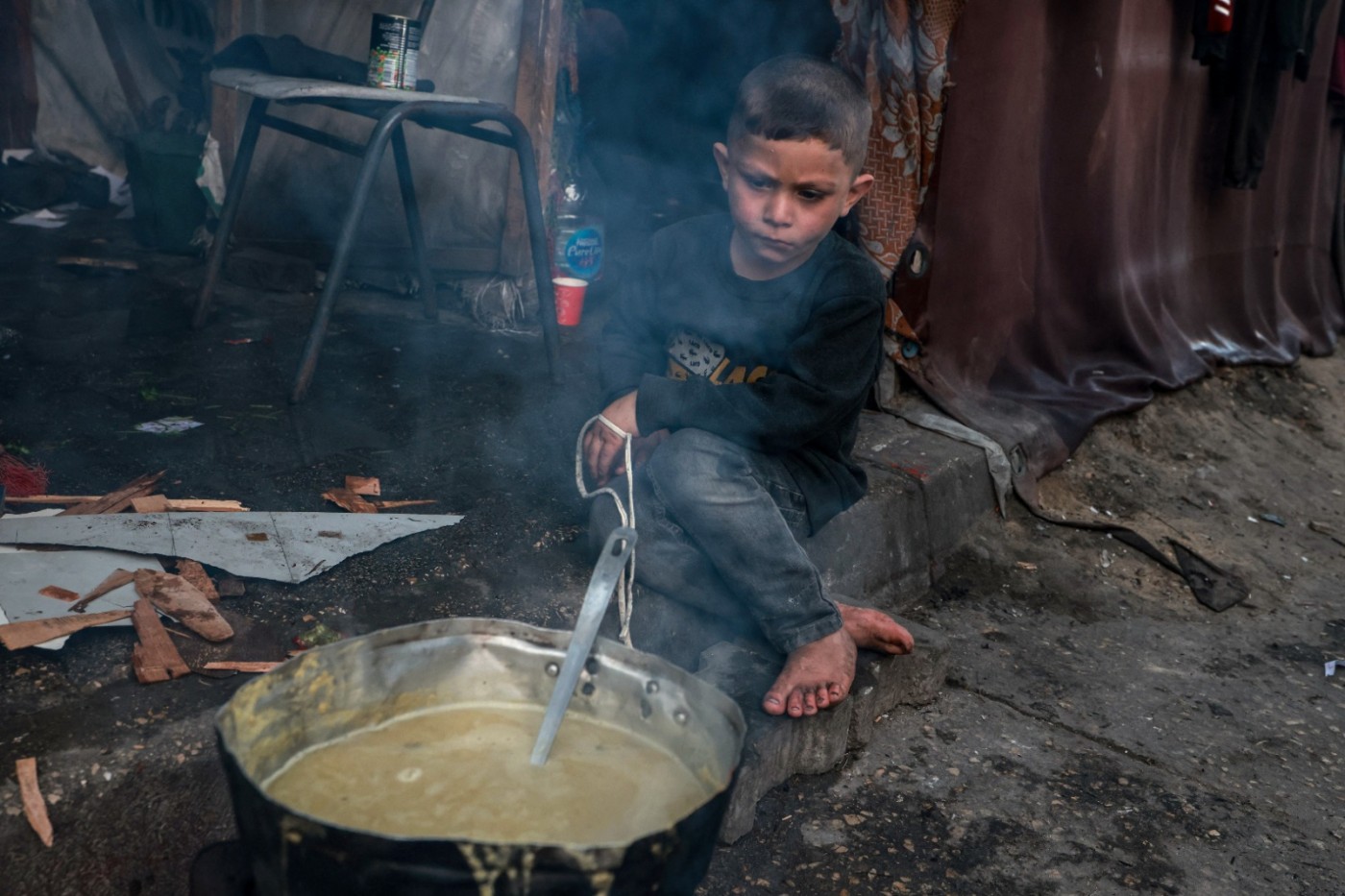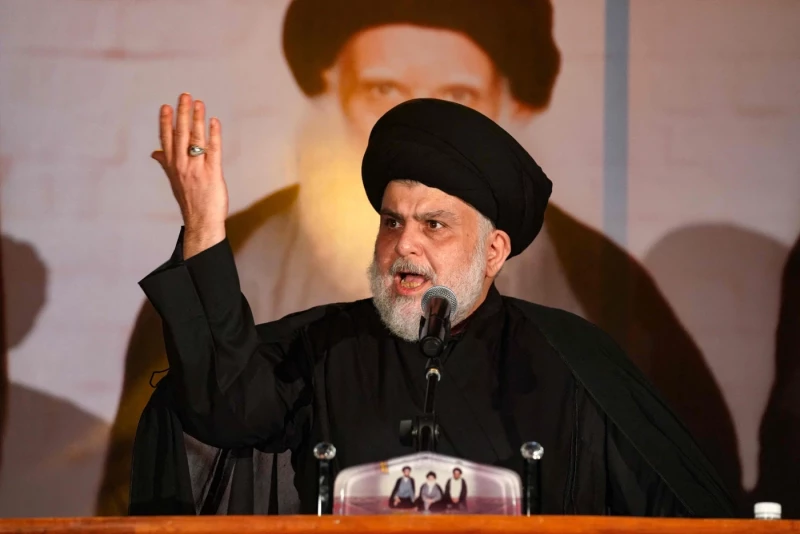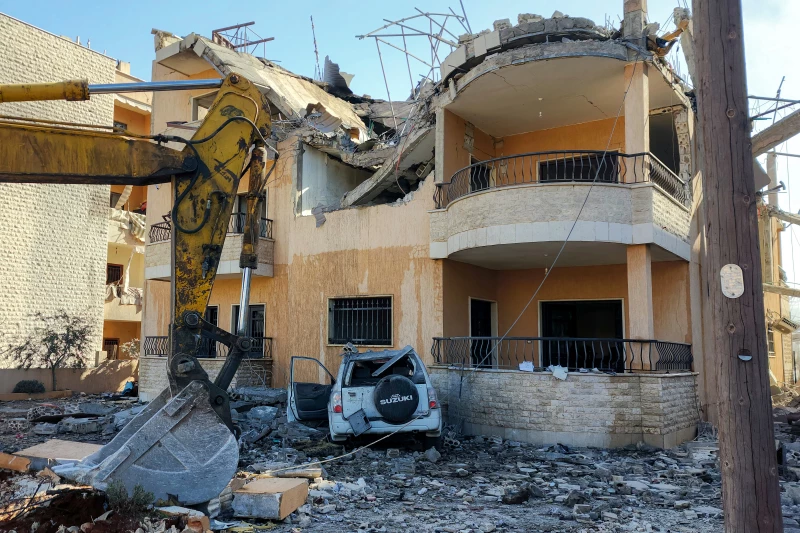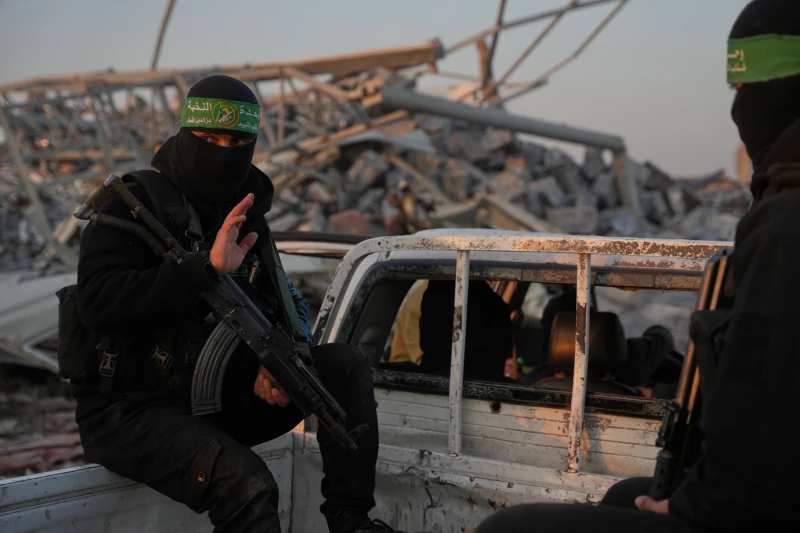"At least one UNRWA staff member was killed and another 22 were injured when Israeli forces hit a food distribution centre in the eastern part of Rafah" in southern Gaza, the United Nations agency for Palestinian refugees said in a statement.
The agency's chief, Philippe Lazzarini, said the "attack on one of the very few remaining UNRWA distribution centres in the Gaza Strip comes as food supplies are running out, hunger is widespread and, in some areas, turning into famine".
Israel later said a Hamas militant was killed in a strike on Rafah, naming him as Muhammad Abu Hasna, one of four people the Gaza health ministry said were killed in the strike on the UNRWA facility.
Donor nations, aid agencies and charities pushed on with efforts to rush food to the impoverished territory of 2.4 million people, where more than five months of war have caused mass civilian deaths and reduced vast areas to a rubble-strewn wasteland.
Efforts to open a maritime corridor or air drop aid over Gaza were "no alternative to aid delivery by land" as they could only provide a fraction of the needs, said a joint statement by 25 organisations including Amnesty International and Oxfam.
A Spanish charity vessel, the Open Arms, was on its way to Gaza from Cyprus, towing a barge with 200 tonnes of aid, in a first voyage along a planned maritime corridor.
Trying an alternative land route from southern Israel, the UN World Food Programme sent an initial six aid trucks Tuesday into worst-hit northern Gaza through a gate in the security fence, the Israeli army said.
"With people in northern Gaza on the brink of famine, we need deliveries every day. We need entry points directly into the north," the WFP said.
As the war since October 7 drags on and mediation efforts have so far failed to secure a new truce, Defence Minister Yoav Gallant vowed again that Israeli forces "will reach every location" in their mission to destroy Hamas.
"There is no safe haven for terrorists in Gaza," Gallant said on a tour of the Hamas-ruled territory, according to a video released by his office.
- 'Not enough' -
Rafah, on Gaza's southern border with Egypt, has remained the coastal territory's last population centre spared an Israeli ground invasion, and Israeli officials have repeatedly threatened to send ground troops into the city.
The prospect of a Rafah invasion -- again touted by Israeli Prime Minister Benjamin Netanyahu earlier Wednesday -- has sparked global alarm because it is crowded with almost 1.5 million mostly displaced Palestinians.
The deadliest ever Gaza war was sparked by the October 7 Hamas attack that resulted in about 1,160 deaths in Israel, mostly civilians, according to an AFP count based on official figures.
The militants also took about 250 hostages, dozens of whom were released during a week-long truce in November. Israel believes about 130 captives remain in Gaza but that 32 of them are dead.
Israel's retaliatory bombardment and ground offensive have killed 31,272 Palestinians in Gaza, mostly women and children, according to the territory's health ministry.
The Israeli military said "approximately 100 terrorists were eliminated" during recent operations in Khan Yunis, southern Gaza's main city.
UN aid chief Martin Griffiths lamented the "devastating news" of the strike on the UNRWA centre, saying on social media: "How are we to maintain aid operations when our teams and supplies are constantly under threat?"
"They must be protected," he said. "This war has to stop."
Stephane Dujarric, spokesman for the United Nations secretary-general, told reporters that "the Israeli army received the coordinates... of this facility".
In Gaza City, desperate Palestinians were awaiting the arrival of the Open Arms aid boat, which the charity operating it said could take days.
Standing on the shore, resident Eid Ayub told AFP that "the aid coming by sea and dropped by air is not enough".
"They send aid, but when this aid arrives, there's no entity to distribute it," he said, also complaining of "merchants" who seize supplies and then resell them.
- 'Job number one' -
Gaza's dire food shortages have killed 27 people through malnutrition and dehydration, most of them children, according to the Gaza health ministry.
Agnes Callamard, Amnesty's secretary general, said air drops and sea shipments of aid "are a sign of powerlessness and weakness on the part of the international community".
"The international community must be prepared to hold Israel to account" and demand overland access for aid, she said.
US Secretary of State Antony Blinken said a planned temporary pier to unload aid "is a complement to, not a substitute for, other ways of getting humanitarian assistance into Gaza".
"Overland routes remain the most critical way to get assistance in," he said, arguing that protecting and aiding civilians must be "job number one" for Israel.
Weeks of talks involving US, Qatari and Egyptian mediators had aimed to bring a truce and hostage release deal before the start of the Muslim fasting month of Ramadan, but missed the Monday deadline.
About half a dozen Arab and Western nations have parachuted food into Gaza, and Morocco has sent a planeload of relief supplies via Israel's Ben Gurion airport.
Fahd al-Ghoul, a resident of Jabalia Camp in the north, said: "We have been fasting against our will for two months or more."
"Now with Ramadan, nothing changes in our reality," the 50-year-old added.



 Facebook
Facebook
 LinkedIn
LinkedIn
 Telegram
Telegram
 X
X


